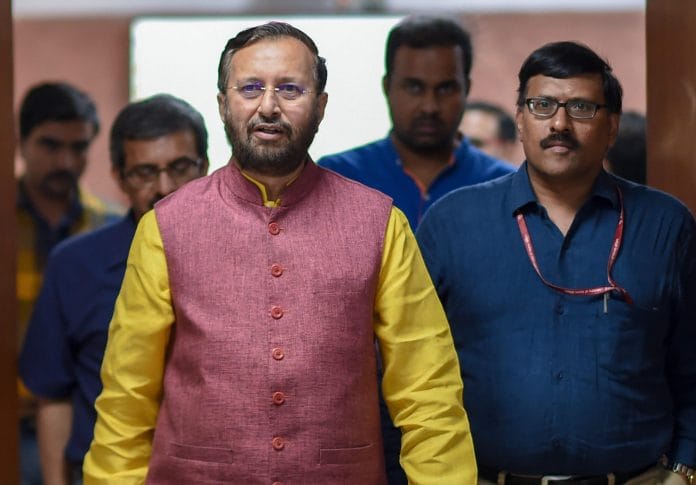New Delhi: At a time of political uncertainty amid the Lok Sabha elections, the Union Ministry of Human Resource Development (HRD) is busy devising a “landmark” five-year plan for higher education.
The new programme, called EQUIP or ‘Education Quality Improvement Programme’, aims to improve quality and boost access to education — it will be to higher education what the Sarva Shiksha Abhiyan was to school education.
According to a ministry official, it is likely to be a landmark reform in the coming years.
“EQUIP has been thought of because there has been no single-window programme for the development of higher education so far and there is a need for it,” said the senior official, who is familiar with the developments.
The official added that the plan will be presented to the next government and, if everything goes well, it is likely to be presented in the Cabinet in July for their approval.
But the ongoing Lok Sabha election doesn’t appear to be a factor in the decision.
“It has no political ramifications, the plan is completely focused on the development of higher education, which is a purely academic exercise, and we hope that it will sail through,” the official added.
Also read: HRD ministry officials will head to Mussoorie to discuss ‘future of higher education’
Experts on the team
For EQUIP, the HRD ministry has engaged several experts, including Niti Aayog CEO Amitabh Kant and others from the thinktank, besides representatives from Infosys and other tech players, former vice-chancellors and educationists.
Different teams comprising these experts will focus on EQUIP’s 10 main focus areas, including accessibility, accreditation, employment, research, governance, and finance.
“We have roped in various experts to look at various aspects, like quality of education, accessibility, accreditation and other things,” said a second HRD ministry official. “Each team is individually looking into things,” the official added.
As reported by ThePrint, the experts had held a meeting with ministry officials at the Lal Bahadur Shastri National Academy of Administration (LBSNAA) from 21-24 April where the future of Indian higher education was discussed.
While one group is working on creating more institutes of eminence, aimed at increasing Indian presence in the world top 100, another will work on governance and issues like funding.
With the new plan, the ministry also wants to make sure there is more clarity and transparency on issues like the appointment of vice-chancellors and fund grants for institutions.
Also read: PhDs in ‘national priorities’: How does Javadekar-led HRD stand affect Indian scholarship?







The State Universities have become graduate churning machine. It is required to identify institutions which can play a role based on its geographical location and faculty strength. Faculty recruitment needs to be prioritised. Availability of funds is not a problem, but utilisation is. A blanket scheme can not help.
Mr.Minister, what are your plans to (1) eliminate communists and communist sympathisers from all positions of influence in the academia; (2) eliminate the choke hold of a few congressi courtiers on the humanities departments in the country, especially the history departments; (3) rewrite the history textbooks, especially at the school level, from the Indian perspective instead of the invader’s perspective?
A lot could, should have been done in the last five years.
A lot was done actually, if you had paid notice.
(New IITs, IIMs, HEFA, TEQIP, Incubation centres etc)